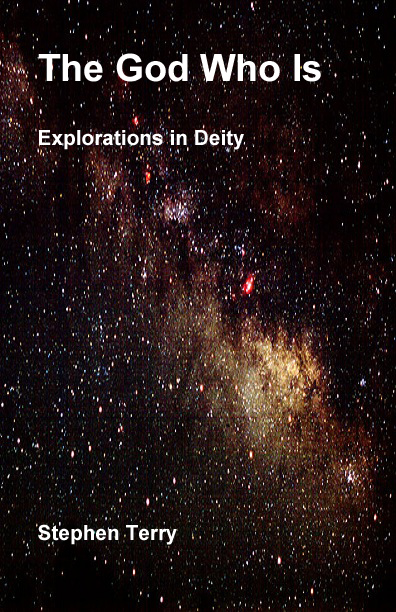Honesty
with God
Stephen
Terry
Commentary
for the February 17, 2017 Sabbath School Lesson
 Ever
since the time of your ancestors you have turned away from my decrees and have
not kept them. Return to me, and I will return to you,” says the Lord Almighty.
Ever
since the time of your ancestors you have turned away from my decrees and have
not kept them. Return to me, and I will return to you,” says the Lord Almighty.
“But
you ask, ‘How are we to return?’
“Will
a mere mortal rob God? Yet you rob me.
“But
you ask, ‘How are we robbing you?’
“In
tithes and offerings. You are under a curse—your whole nation—because you are
robbing me. Bring the whole tithe into the storehouse, that there may be food
in my house. Test me in this,” says the Lord Almighty, “and see if I will not
throw open the floodgates of heaven and pour out so much blessing that there
will not be room enough to store it. I will prevent pests from devouring your
crops, and the vines in your fields will not drop their fruit before it is
ripe,” says the Lord Almighty.
Malachi
3:7-11, NIV
After six weeks of general discussions regarding
stewardship, we finally have gotten to the crux of the matter for this quarter’s
Sabbath School lessons. We all knew it was coming and now the tithe question is
here. Perhaps we should begin with an understanding of what the tithe is. First
of all, the word tithe is not originally a Bible word. The Bible simply says “tenth.”
So where does the word “tithe” come from? It comes to us from Middle English,
where it also simply meant “tenth.”[i] When the Bible was
translated into English, “tenth” naturally became “tithe.” Since we all know
how much holier, King James English sounds than modern English thanks to the
King James Bible of 1611, using the word “tithe” instead of “tenth” gave the concept
a more spiritual aura. Unfortunately, translating every instance of tenth as
tithe also created associations between disparate events that may be based more
on assumption than reality. For instance, our quarterly makes a link between
Abraham giving a tenth of what he brought back from battle to Melchizedek[ii] and the tenth paid to support
the Aaronic priesthood.[iii] Some readily apparent
differences are the tenth Abraham paid was voluntary, while the tenth paid to
support the Aaronic priesthood was a mandatory tax, and Abraham was blessed
before paying the tenth, while God withholds His blessing until the tenth for
the priesthood is paid per our verses at the top of this commentary from
Malachi. Interestingly, our quarterly attempts to link the two events based on
a passage in Hebrews, chapter 7.[iv] While one may certainly
choose to read it that way, especially if one is trying to make an argument to
require continued tithe paying in modern times, it may also be seen as the
author pointing out how much things have changed since then, especially in
light of verses 11 through 19, which our quarterly omits mention of.[v] Per that passage, the
Levitical Priesthood was replaced with a better one with Melchizedek as high
priest.
The Levitical or Aaronic Priesthood was one of legalism
and obedience. Foundational to that system was the Decalogue given on Sinai.[vi] Said to be originally
carved by the finger of God, it promised blessings in exchange for obedience.
Nonetheless it could not save. It could only condemn, and all fell under its
condemnation,[vii]
for all are disobedient on some level.[viii] There was a semblance
of salvation through the sacrificial system that symbolically placed the sins
of the people on the animals being slaughtered, but as it was only type, it
could not truly save. Salvation instead came through the antitypical sacrifice of
Jesus on the rude, wooden cross of Calvary. Why is that the case? It is because
Jesus is the Melchizedek[ix] that Abraham met, long
before the Exodus and long before Moses, Aaron, and Levi, and long before Mount
Sinai. He represented a restoration of faith that had once existed in the hearts
of mankind that allowed individuals like Abraham to speak directly to Him. The
system of human mediation interposed after Egypt was ended at the cross,
symbolized by the rending of the curtain in the temple.[x] Once that system ended,
all that pertained to it ended as well. Animals no longer needed to be slain
for human turpitude. Instead the tremendous weight of all of that was born by
the shoulders of Jesus, once for all time, as He gasped for breath and
withstood horrendous pain on our behalf.
The Jews did not understand the significance of the
sacrifice they had witnessed and kept on offering sacrifices for almost another
four decades before the temple was destroyed and the sacrifices were forced to
cease. Even the apostles were slow to realize the significance of the change,
as evidenced by their urging Paul to sponsor some individuals by paying for
their sacrifices in the temple upon completing their vows, something that
ultimately led to Paul’s arrest, imprisonment, and eventual trip to Rome.[xi] Perhaps this experience provided,
at least in part, the catalyst for his understanding of grace and the law
shared in his epistles to the Romans and Galatians. But what of the tenth paid
to the Levites?
The Levites were part of a theocratic system set up
before there were kings or other rulers demanding taxes. As far as we know, the
tithe was the only tax levied on the Israelites during that period. As such,
the burden would have been understandably lighter. This may be why Samuel
warned the people of the increased financial responsibility that would arise
when the people demanded a king be appointed over them. The Levites would still
be doing their service and therefore would expect to be supported, but the king
would also demand money for his household, for his armies, for his bureaucracy,
and for diplomatic purposes. Perhaps it was because of this increased burden
that the temple fell into disrepair during the time of the kings. This may have
also been a contributing factor in the temptation for the priesthood to become
corrupted as they searched for other means of support, such as the money
changers and the sellers of sacrificial animals in the temple courtyard, as
Jesus witnessed and challenged.[xii]It is possible He may
have raised this challenge in anticipation of the end of the Aaronic
Priesthood, seeing the corruption it brought about as being therefore
indefensible.
But what of the desire of some to link the
Melchizedekian and Aaronic Priesthoods in order to justify continuing to impose
a mandatory tithe on church members based on that link? First of all that link
is tenuous. The Aaronic Priesthood was mortal and ended at the cross, whereas
the Melchizedekian Priesthood is eternal, existing before Aaron and Levi and
lasting throughout eternity. The Aaronic Priesthood descended from Levi, but
the Melchizedekian Priesthood came through Judah, the royal line. Even in
Abraham’s time Melchizedek was King of Salem. The Aaronic Priesthood is limited
to the tribe of Levi, but the Melchizedekian Priesthood is universal to all
believers. Peter points this out by telling us we are priests, but he also makes
it clear which order we belong to by calling us royal priests.[xiii] It is impossible for
non-believers to join this priesthood because it is eternal and only those who
are to receive eternal life could possibly fulfil the office. As Christ gained
victory over death, so He grants that victory to us as well, a promise to be
fulfilled at the Parousia.
This naturally creates a dilemma. If all are priests,
who are to pay the tithe and who are to receive it? Some might have us believe that
we must continue to pay the tithe tax to support a class of ecclesiastical
overlords who refuse to perform secular labor. This was not the model of the
apostolic church. Rather, they raised funds to support the poor and needy, the
widows and orphans and those persecuted for the faith. With this kind of
ministry, even Paul was reluctant to be a burden to the church with his needs
and worked as a tentmaker to provide for himself and those with him.[xiv] Even Aquila and
Priscilla, leaders in the Corinthian church, worked at the same secular labor
as Paul. If any of these thought that they should be supported by tithe, they
never said or indicated such. If tithe paying were as important to the church
as we are taught to believe today, one would think it would be a requirement of
those qualified for church office, but Paul does not list that as a
qualification anywhere for church membership and definitely not in his list of
qualifications for overseers or deacons in his letter to Timothy.[xv] He also made no mention
of it in his instructions to Titus regarding the requirements for Elders.[xvi] While Paul does mention
to Timothy that Elders should be provided for,[xvii] he does not equate this
with tithe and what he mentions may be more in line with Luke 10:7[xviii] than with any Aaronic
tithe.
While some may see an abandonment of the Aaronic tithing
system as a threat to the church, it can be a tremendous blessing as the
clerical class work to support themselves in ministry like Paul did, and the
monies required to support those whose functions have often been primarily
administrative are redirected to relieve suffering and to support evangelism on
a greater scale than at present. All can be active in ministry and rather than
paying for a weekly pontification, we could share the stories of our
evangelistic experiences, answers to prayer and miraculous interventions just
like the apostolic church of Acts. It is possible to be a modern church that
takes care of others according to need rather than by job title, and where we
can mentor one another into self-sufficiency. There may be a day coming when expensive
buildings and paid clergy will no longer be viable, but if we have learned
beforehand to minister and evangelize without either, what will it matter?
